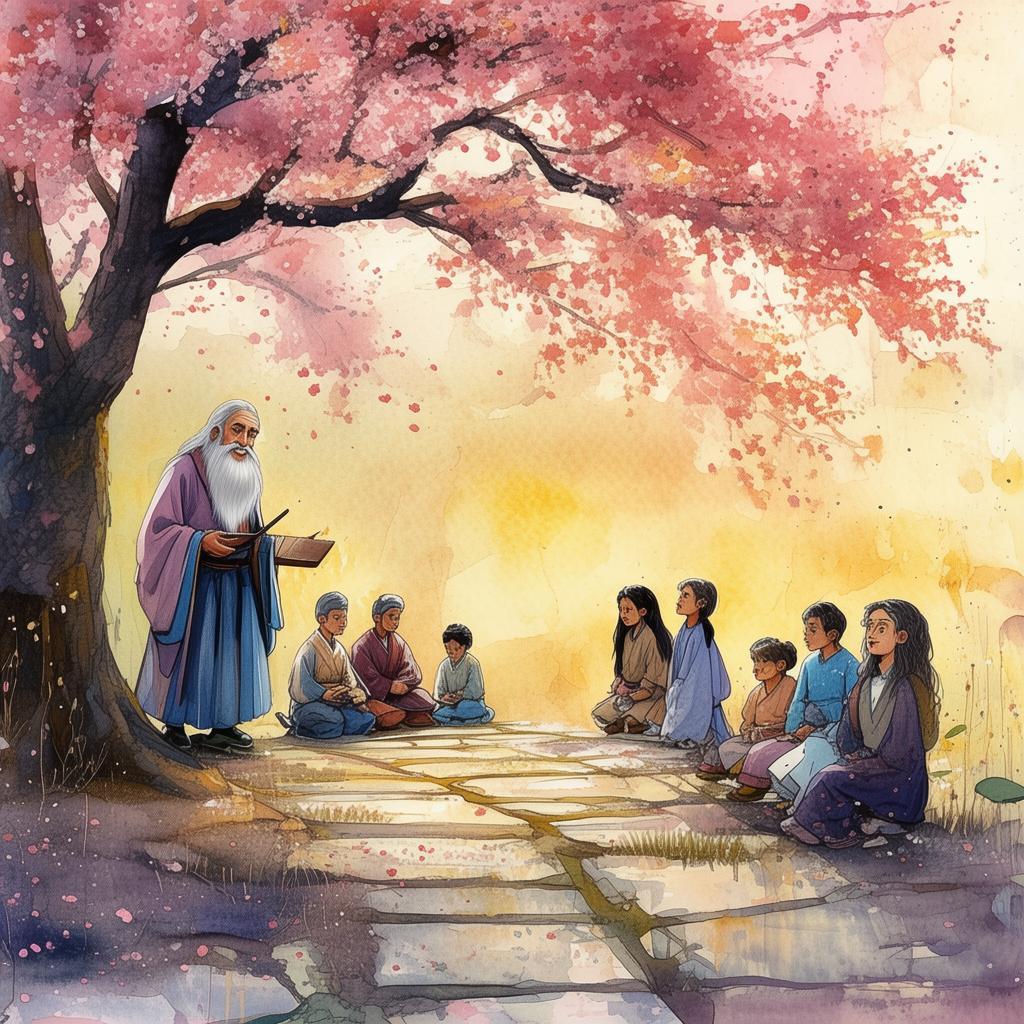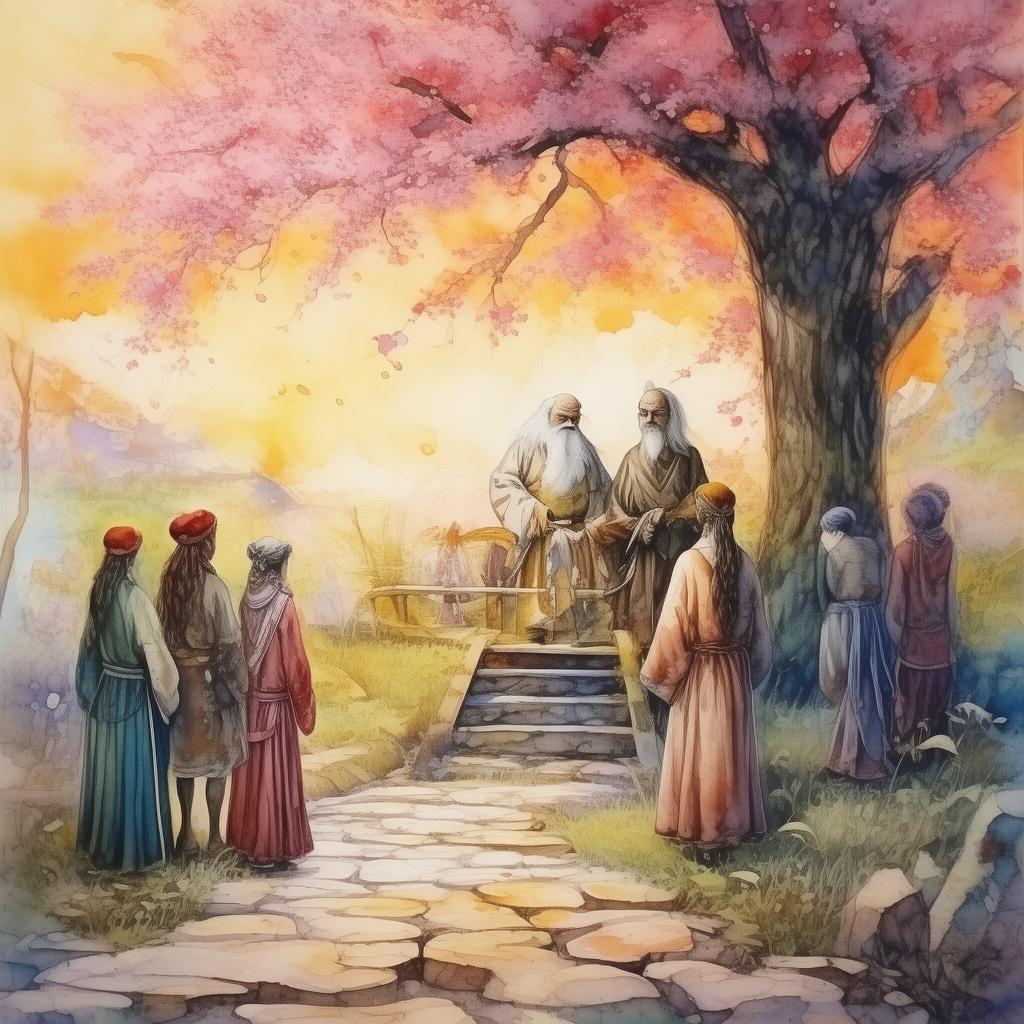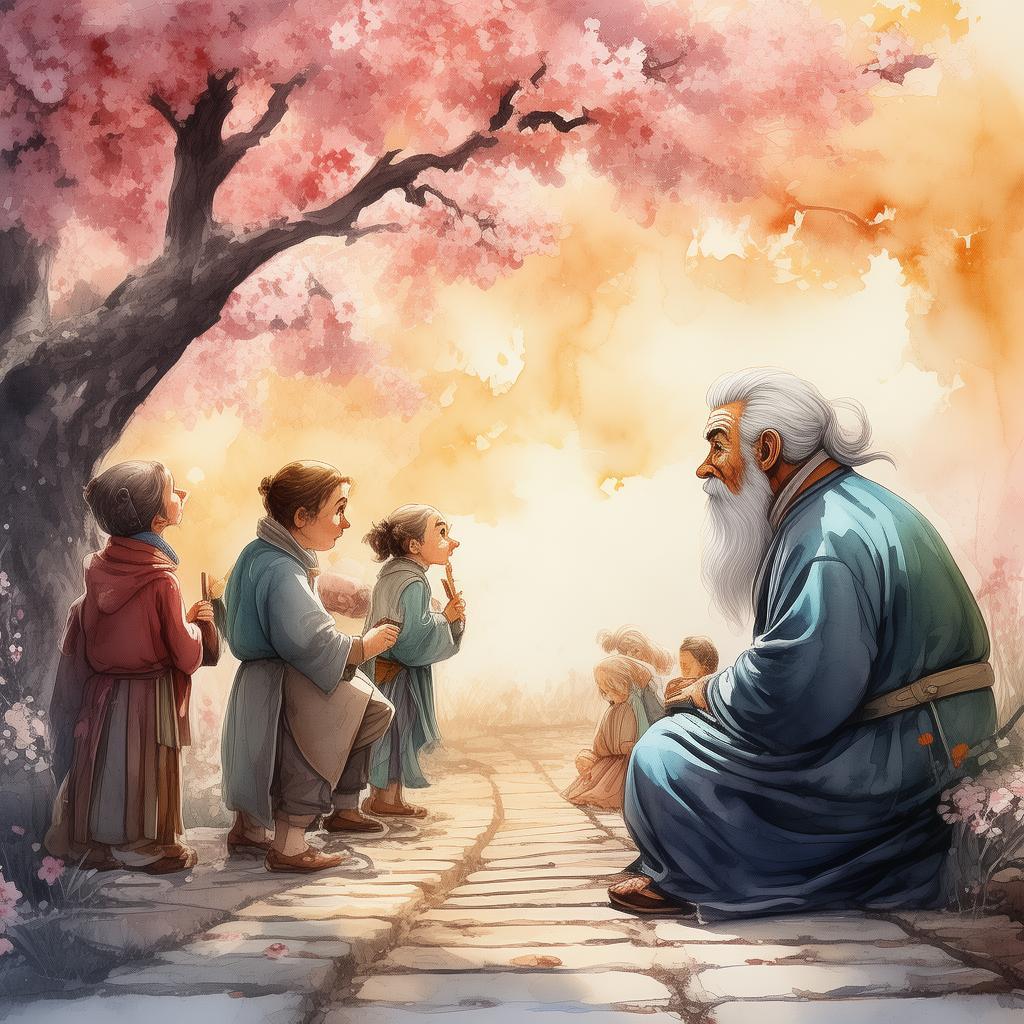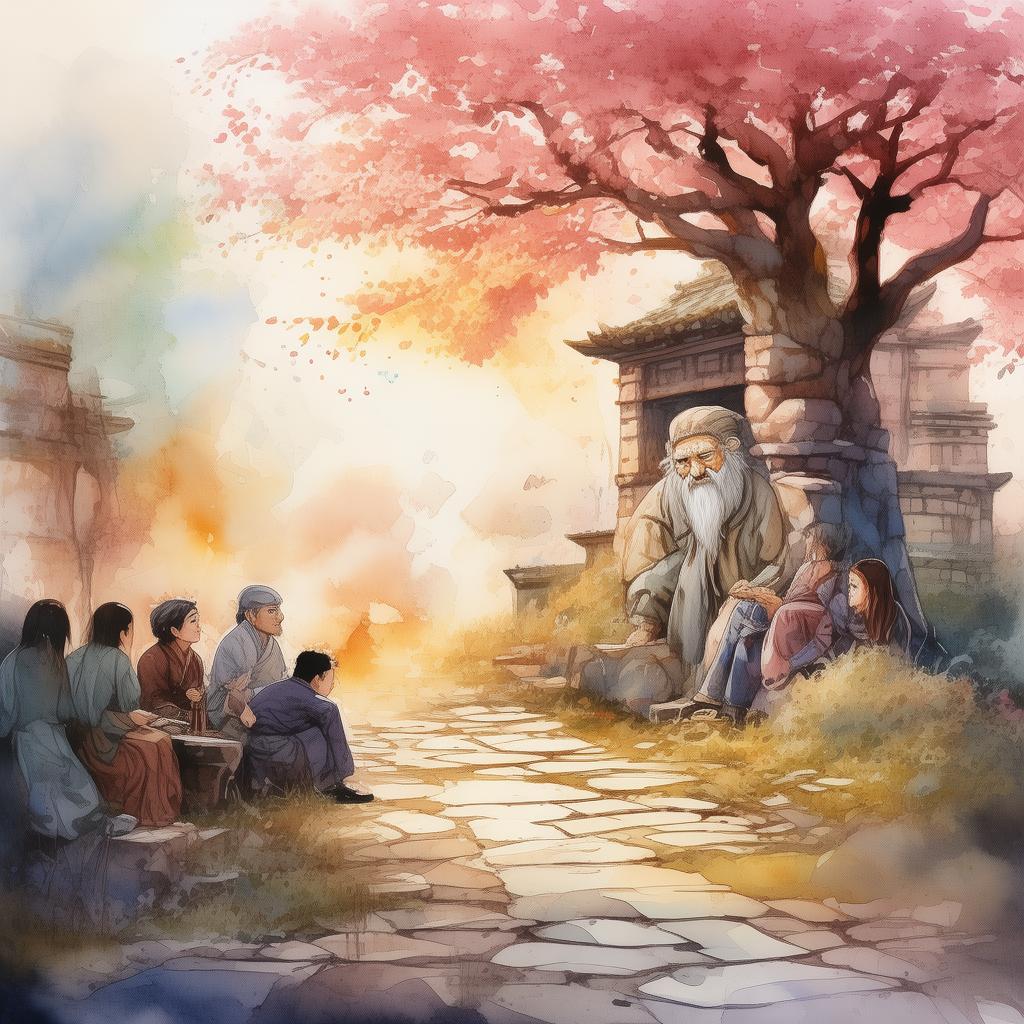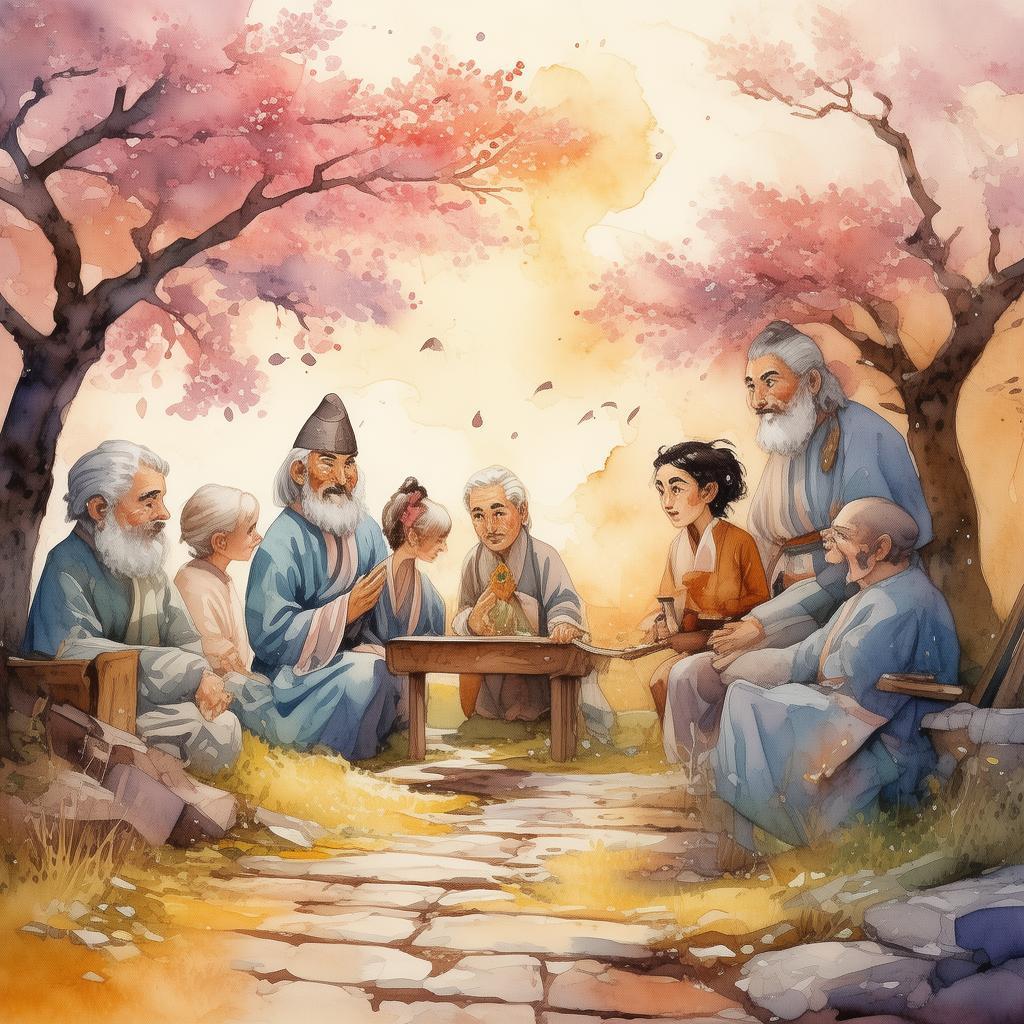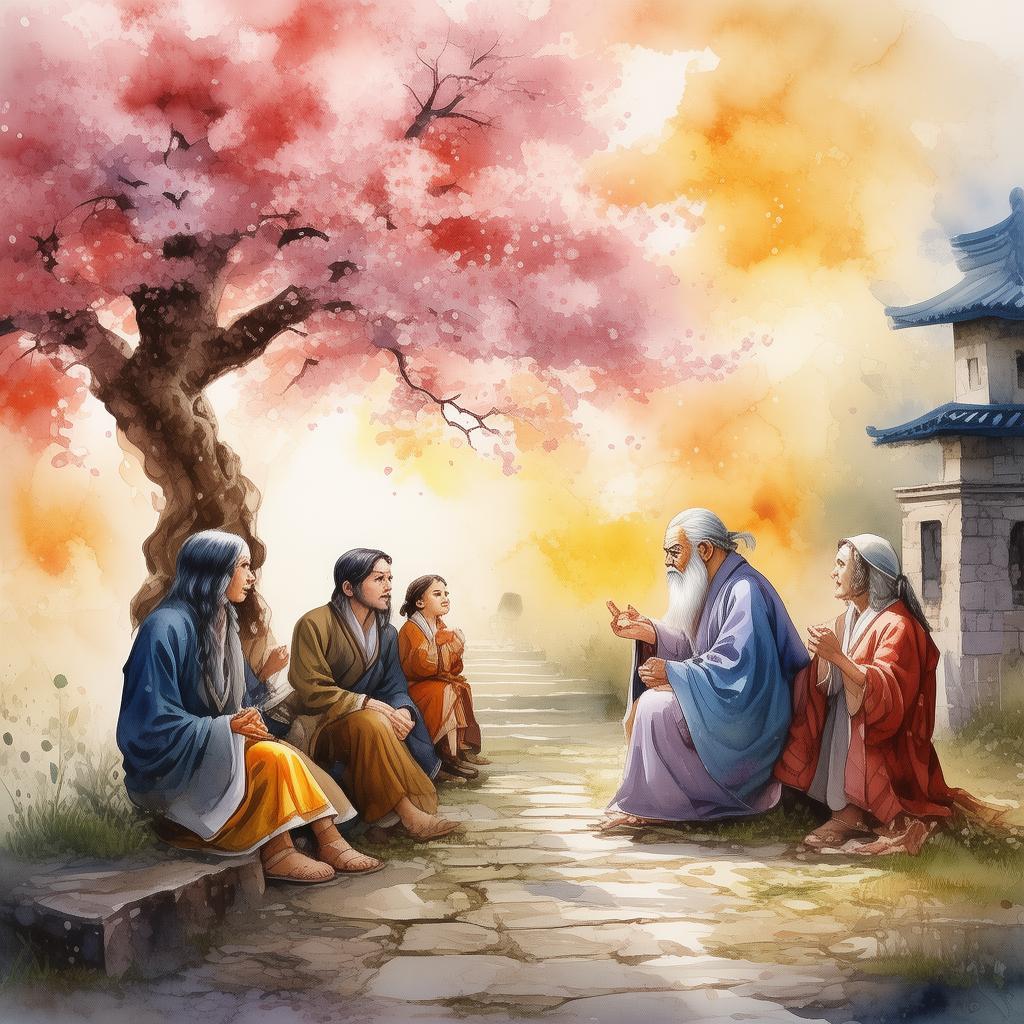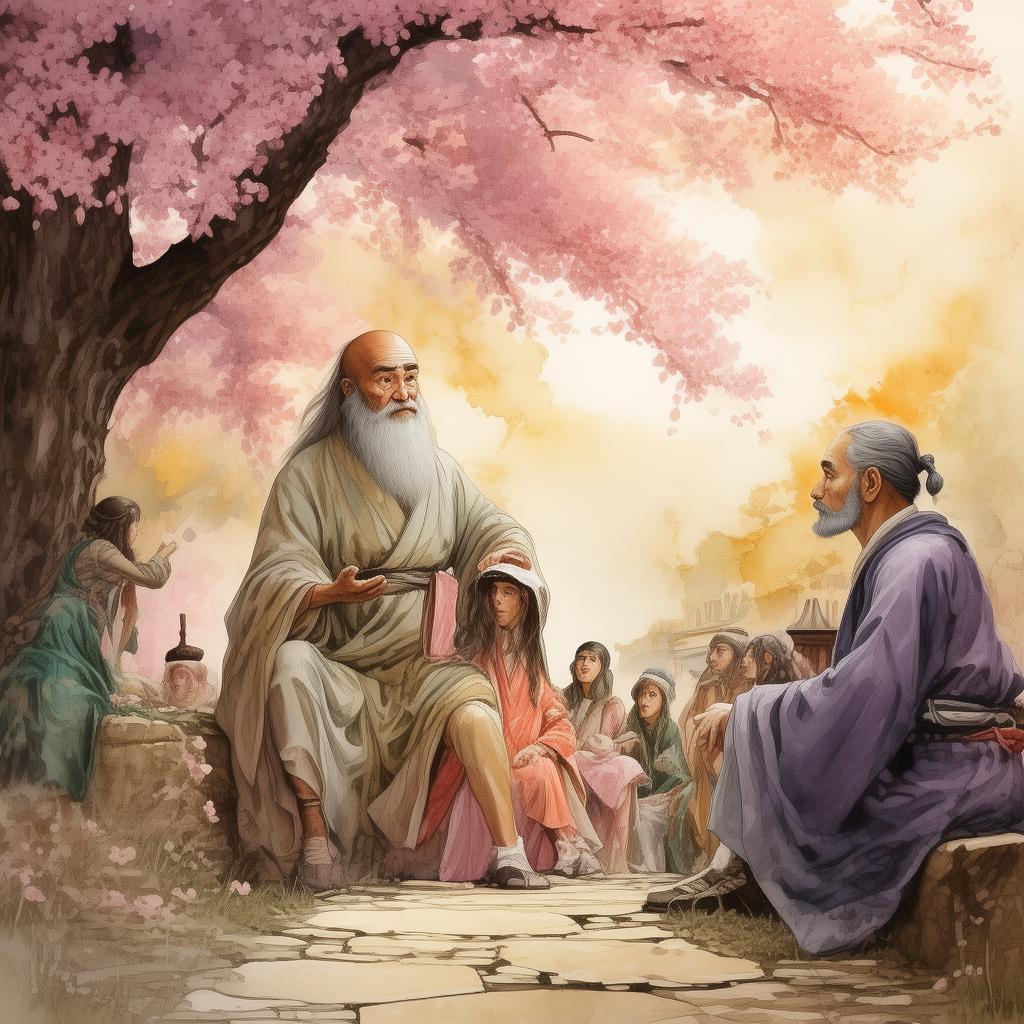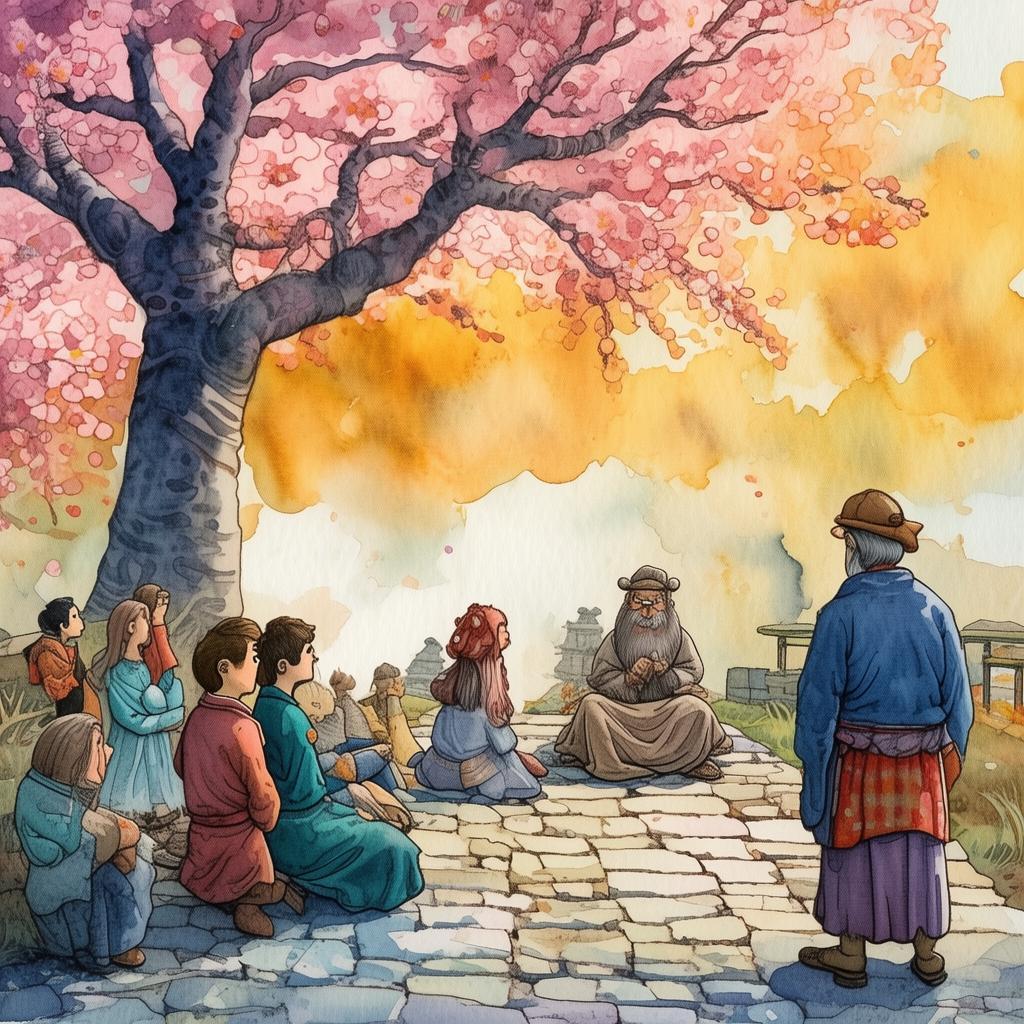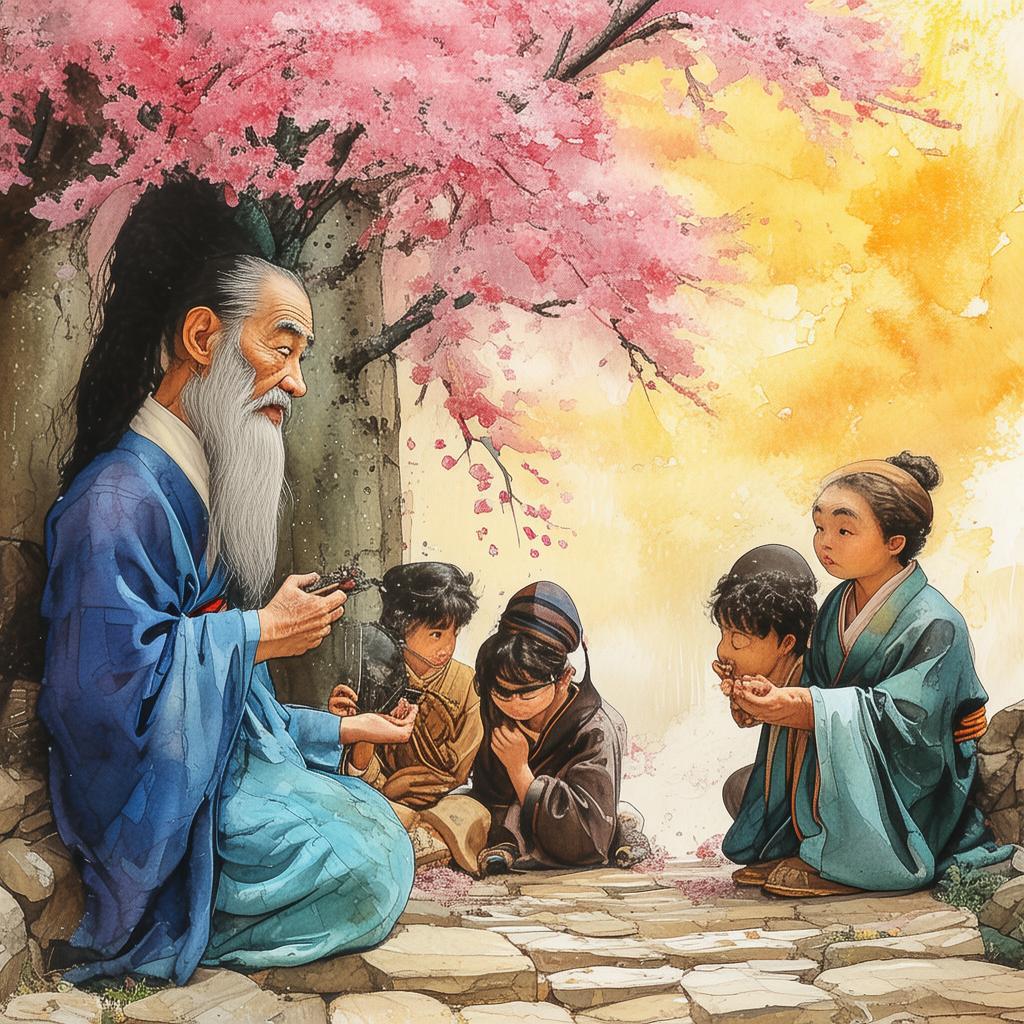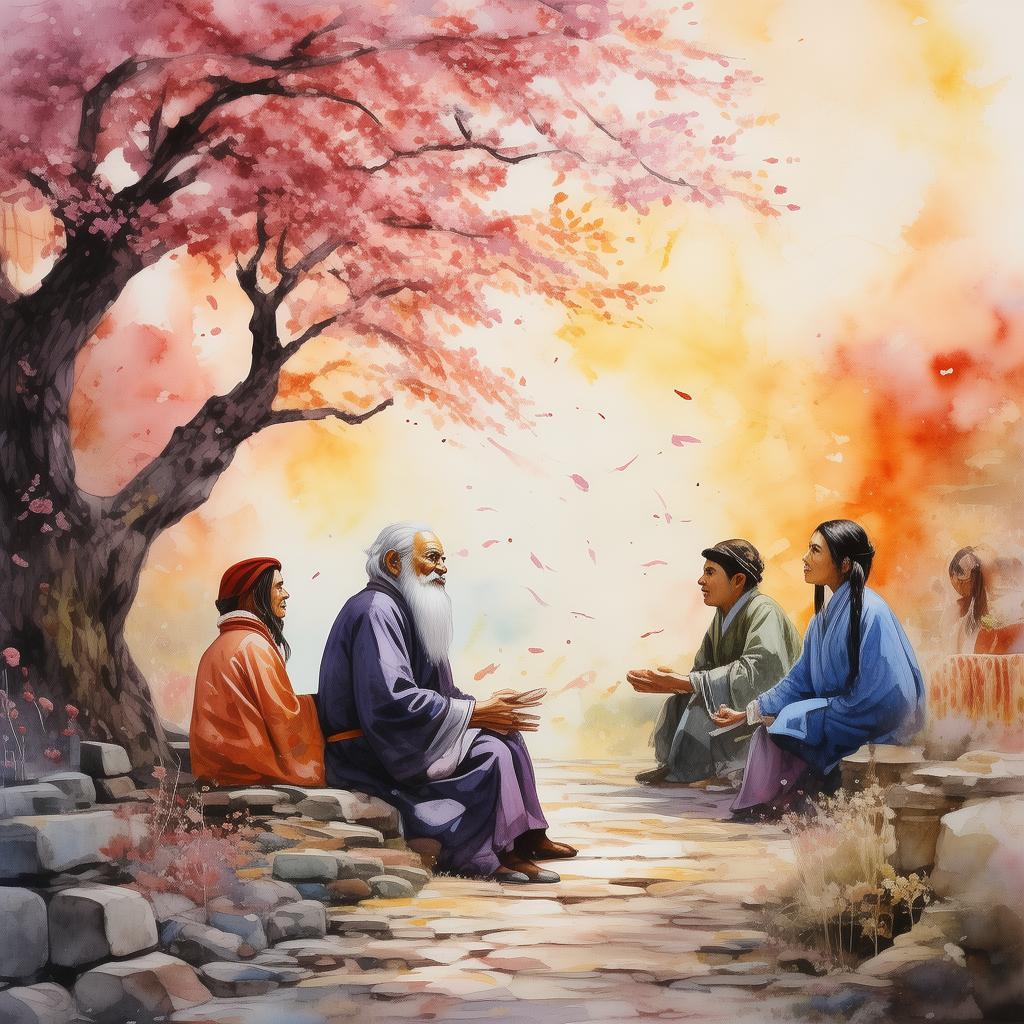Time's Tangle: The Paradox of Choice
In the ancient city of Chronos, there stood the grand temple of the Timekeepers, a place where the fabric of time was woven and spun by the hands of the most learned scholars. Among these scholars was a young and ambitious timekeeper named Lin, whose eyes held the same spark of curiosity as his predecessors.
Lin had always been fascinated by the endless unraveling of life, the choices that shaped destinies, and the threads that intertwined to form the tapestry of time. He spent countless nights gazing at the stars, wondering what would happen if the past could be rewritten, if the future could be altered at will.
One fateful evening, as the temple was shrouded in moonlight, an ancient book, bound in a leather cover that had seen centuries, was presented to Lin. It was the tome of the Timekeepers, rumored to contain the ultimate secret of time. As Lin opened the book, a surge of energy coursed through him, and he was granted the power to control time itself.
With this newfound ability, Lin felt like a god, a creator of destinies. He began to alter the past, making choices for people he had never known, hoping to better their lives. Yet, with each choice, the fabric of time frayed, and the present became a patchwork of inconsistencies.
One morning, Lin met a young girl named Mei, whose life was marred by a family tragedy. In an attempt to ease her pain, Lin used his power to alter the past, preventing the tragedy from ever occurring. However, as the days passed, Mei seemed happier, but Lin noticed an unsettling change in her demeanor. She began to act more cautious, as if she were hiding something important.
Curiosity piqued, Lin decided to follow Mei, only to discover that she was being watched by the very person whose life he had altered. This person, it turned out, was about to commit a great crime that would have repercussions on the entire city. Lin realized that by changing the past, he had also altered the future in unforeseen ways.
Determined to rectify his mistake, Lin set out to undo the changes he had made. Yet, as he attempted to alter the past, the present became more chaotic, and Mei's life was further disrupted. He came to understand that his actions had created a paradox, a time's tangle, where every choice led to a new consequence, and no path seemed clear.
One evening, as Lin stood on the edge of the temple's highest spire, he looked out over the city. He saw the consequences of his actions in the eyes of the people he had touched. He saw the pain and joy, the good and the bad, all woven together by the choices he had made.
In that moment of clarity, Lin realized that the true power of time was not in altering the past or predicting the future, but in accepting the present as it was. He understood that life was a series of choices, and while some could be undone, others could only be learned from.
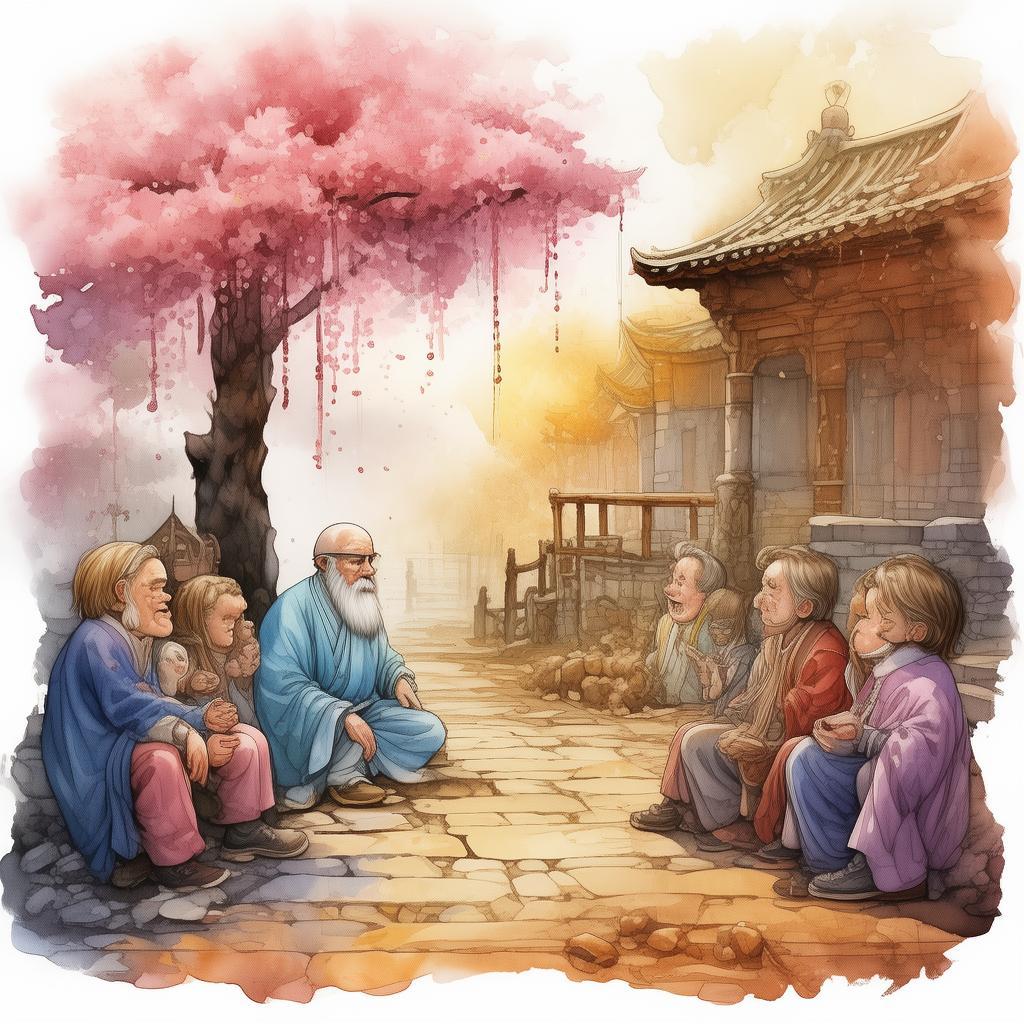
With a heavy heart, Lin released his hold on the tome of the Timekeepers, allowing the book to drift away into the night sky. He descended the temple steps, a newfound sense of peace filling him. He knew that he could never change the past or predict the future, but he could live in the present and make choices that would shape his destiny for the better.
As Lin walked away from the temple, the city of Chronos seemed to pulse with a new life, the people living in harmony with the time that surrounded them. And Lin, the young timekeeper who once believed he could control time, now understood that the greatest power of all was to accept the time that was given to him.
The end.
✨ Original Statement ✨
All articles published on this website (including but not limited to text, images, videos, and other content) are original or authorized for reposting and are protected by relevant laws. Without the explicit written permission of this website, no individual or organization may copy, modify, repost, or use the content for commercial purposes.
If you need to quote or cooperate, please contact this site for authorization. We reserve the right to pursue legal responsibility for any unauthorized use.
Hereby declared.
